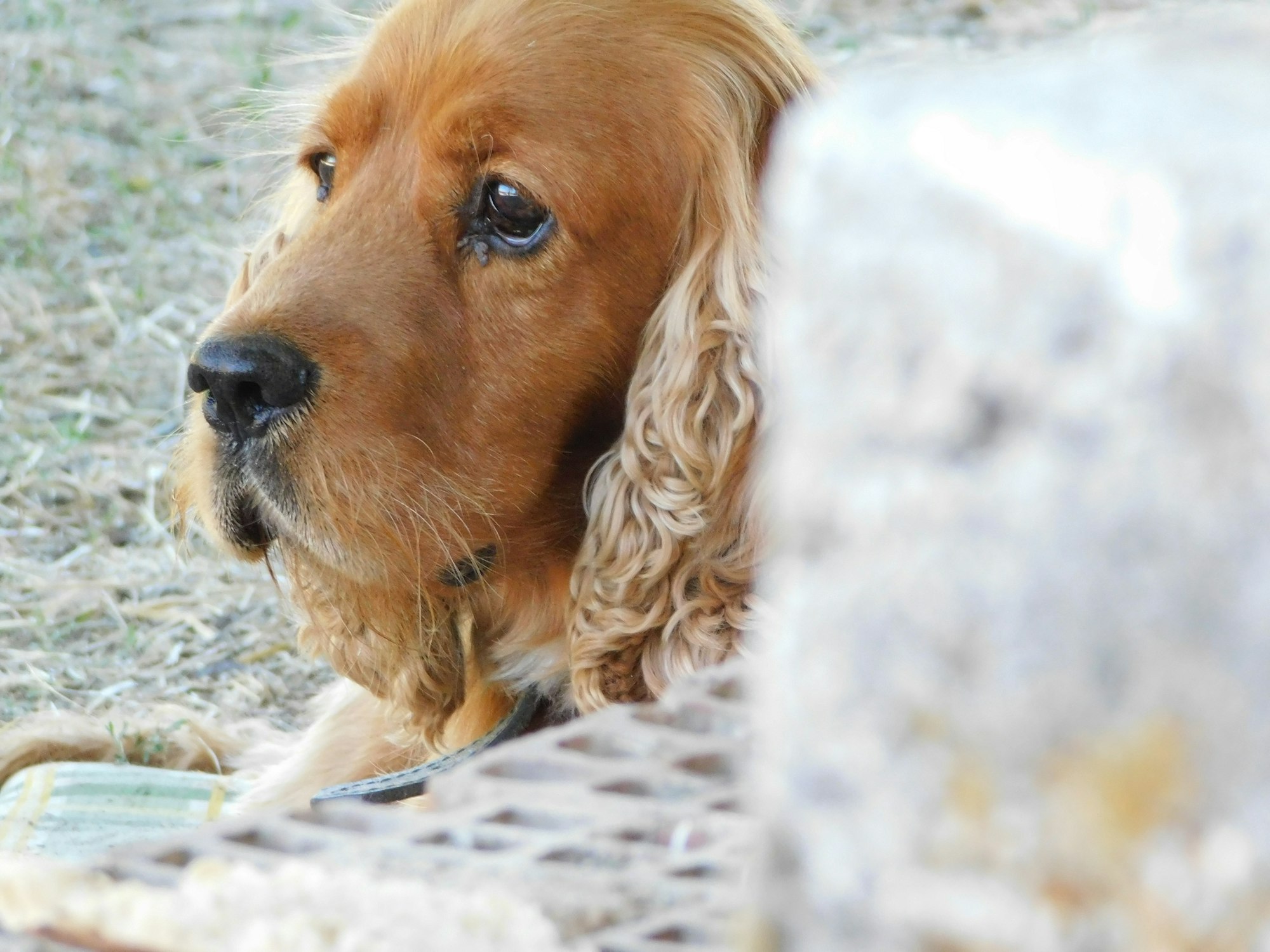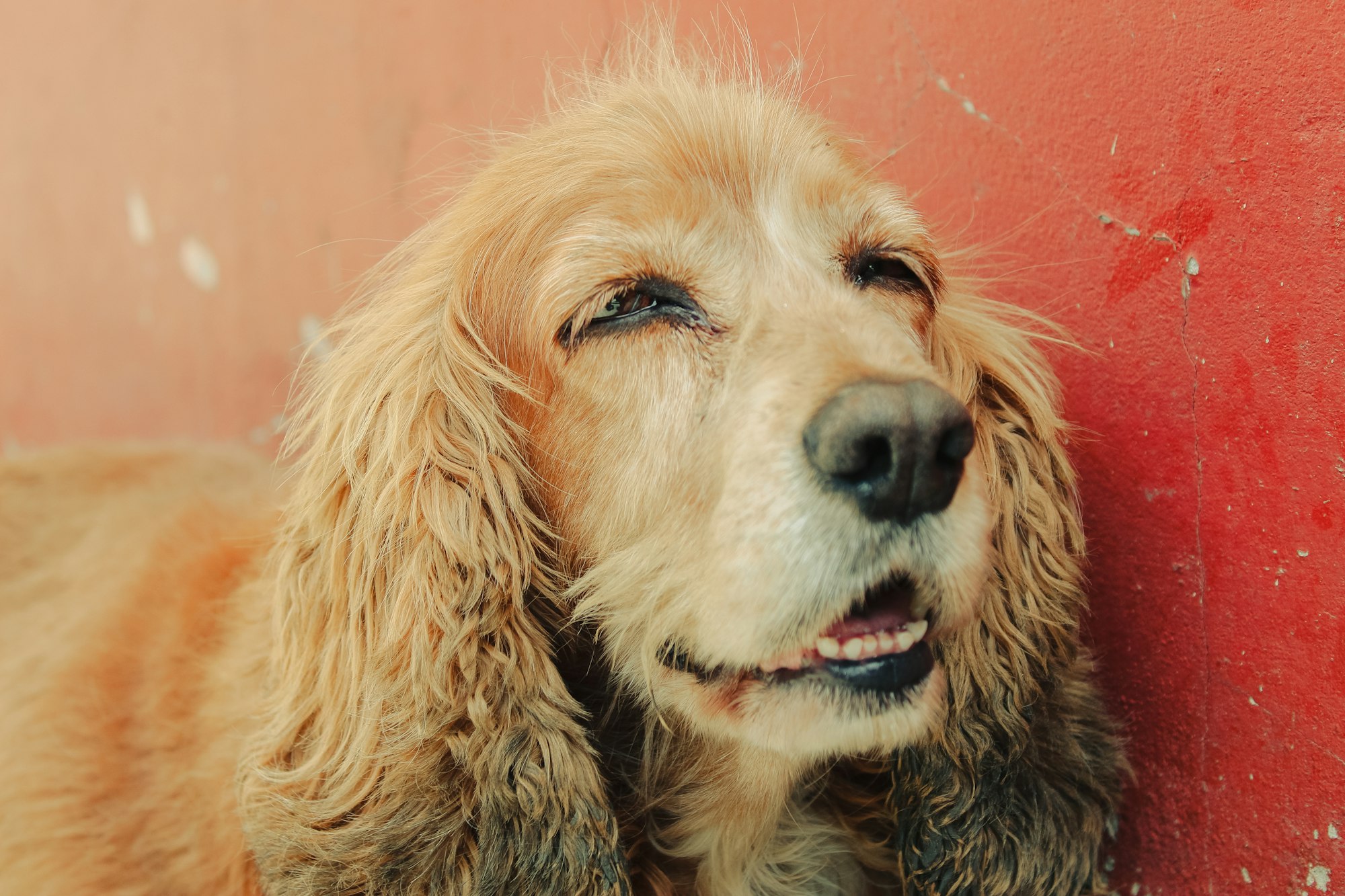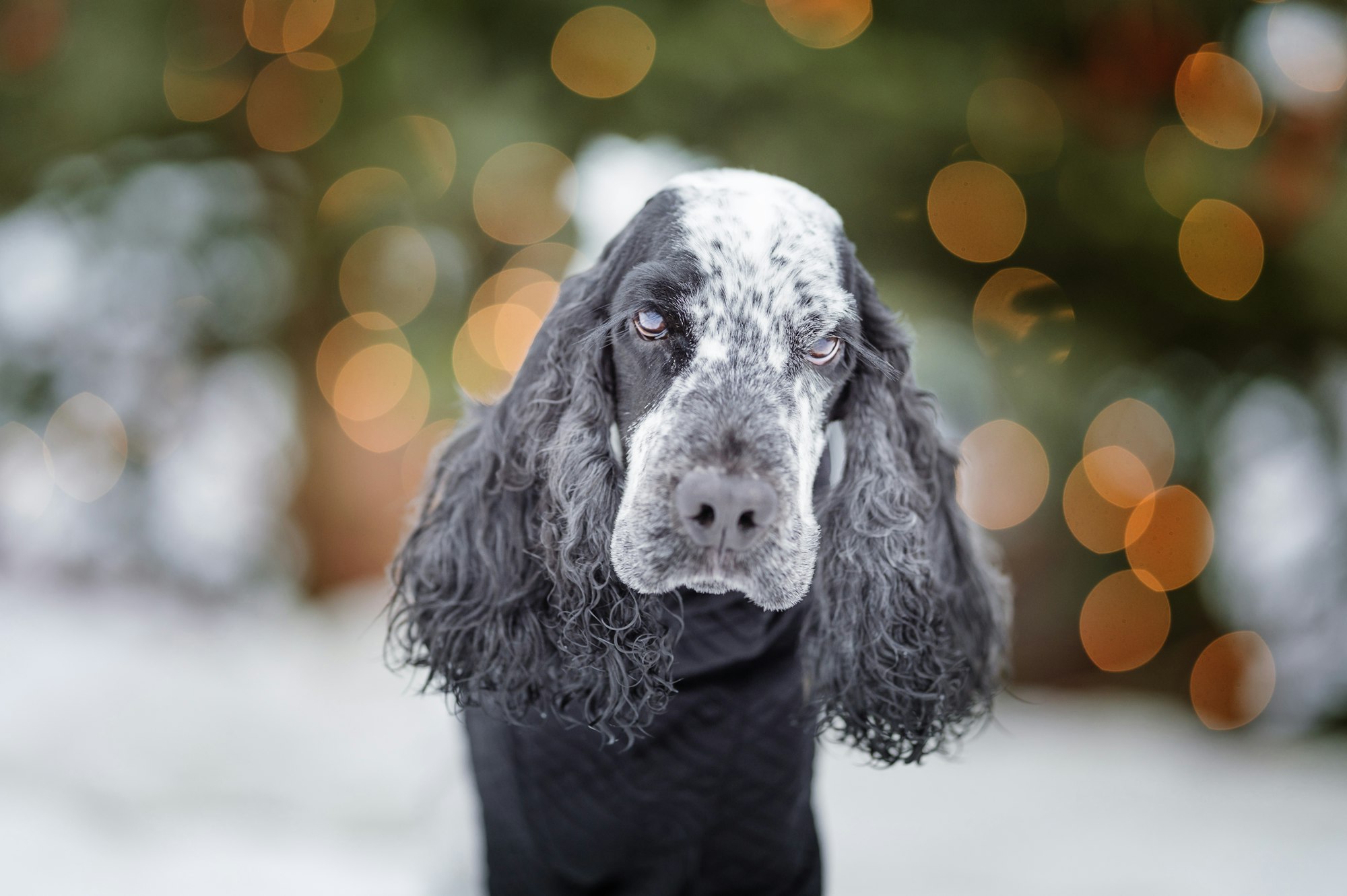From the moment you lay eyes on that tiny, wobbly pup, you're caught in its charm. And as it grows, its beauty only amplifies. Let me take you on a journey, detailing the captivating transformation of the Cocker Spaniel, from an adorable pup to an elegant, full-grown beauty.

The First Sight: Cocker Spaniel Puppies
You see them first in pictures, perhaps on a breeder's website or a friend's social media post. Those big, soulful eyes and those floppy ears. They seem almost too cute to be real. Cocker Spaniel puppies are irresistibly adorable, with their petite size and those paws that they're bound to grow into.
But here's what's even more fascinating: their growth stages.
Growth Stages of the Cocker Spaniel
Each stage of the Cocker Spaniel's life brings its unique charms and challenges.
Infancy to Three Months
During these early days, you'll find the pups mostly eating, sleeping, and occasionally playing. Their curious eyes will start exploring their surroundings, and by the third month, they'll be more active, starting to exhibit some of that signature Cocker Spaniel energy.
Four to Six Months
This is the 'teenage' phase. They're playful, mischievous, and sometimes downright stubborn. Training becomes essential during this time. Remember the keyword here: patience. Oh, and did I mention they'll begin teething? Get ready for some chewed-up shoes.
Seven Months to a Year
The Cocker Spaniel starts to mature. Their appearance begins to resemble the full-grown beauty they'll eventually become. It's also the time when their coat starts to grow longer and needs more frequent grooming.
Characteristics of a Full-Grown Cocker Spaniel
Time flies, and before you know it, your puppy is all grown up. A full-grown Cocker Spaniel boasts a silky, wavy coat, often in a variety of colors or combinations. Those once oversized ears now perfectly frame their expressive eyes.
But what truly sets them apart is their temperament. Known for being affectionate and gentle, they're the kind of dogs that love being around their humans. They possess a certain elegance, combined with an ever-playful nature, which makes them both regal and approachable.
Caring for the Ever-Evolving Cocker Spaniel
Grooming Tips
Cocker Spaniels have a luxurious coat that requires regular grooming. Regular brushing prevents tangles and mats. And those beautiful ears? They need cleaning to prevent infections, given they can trap moisture and dirt.
Health Issues
Like all breeds, Cocker Spaniels have their specific health concerns. Regular check-ups, a balanced diet, and exercise go a long way in ensuring they remain at their healthiest.
Training and Socializing
Start early. The earlier you begin training and socializing your Cocker Spaniel pup, the better adjusted they'll be as adults. Positive reinforcement methods work wonders with this breed.
A Timeless Beauty
As you sit back and reflect, watching your Cocker Spaniel elegantly stride across your living room or playfully chase a ball in the yard, it's hard not to be in awe. The journey from a tiny pup to a full-grown beauty is filled with laughter, challenges, and moments of pure joy.
So, whether you're a proud Cocker Spaniel owner or someone contemplating bringing one into your life, always remember this transformation journey. Cherish every moment because, in the blink of an eye, that playful pup becomes a full-grown beauty.

The Legacy of the Breed: A Dive into Cocker Spaniel History
While our journey primarily focuses on the individual growth of the Cocker Spaniel, it's equally fascinating to dive into the breed's history. The Cocker Spaniel’s roots trace back to Spain, but it was in England where they were distinguished and refined into the beauties we know today.
Historical Significance
The name "Cocker" stems from the breed's proficiency in hunting woodcock birds. These agile dogs were bred for their keen sense of smell and their incredible stamina, darting through thickets and woods. Over time, as their hunting roles decreased, their popularity as companion animals surged.
The American and English Varieties
Though sharing a name and a common ancestry, the American and English Cocker Spaniels have diverged slightly in appearance and temperament. The American variety, which most are familiar with, is smaller with a more domed head, while the English variety is more robust with a square muzzle. Both, however, share that same charismatic charm and boundless affection.

Feeding Your Cocker Spaniel: From Pup to Adult
As your Cocker Spaniel transitions from a playful pup to a graceful adult, their dietary needs change too.
Puppyhood
During their puppy months, a Cocker Spaniel requires food rich in protein and fat to support their rapid growth and boundless energy. It's best to feed them specially formulated puppy food, ensuring they get all the essential nutrients.
Adulthood
As they age, their metabolism slows down. Thus, adult Cocker Spaniels need balanced nutrition to maintain a healthy weight and keep their coat shiny. Foods rich in omega fatty acids, protein, and essential vitamins will ensure they remain in peak condition.
The Cocker Spaniel in Popular Culture
Over the years, Cocker Spaniels have made a significant mark in popular culture. Their graceful appearance combined with their amicable temperament makes them a darling not only in homes but on the silver screen and in literature.
Spotlight Moments in Film and Television
One can't discuss Cocker Spaniels in media without mentioning the iconic "Lady" from Disney's "Lady and the Tramp." With her demure demeanor and sophisticated appearance, Lady encapsulated the essence of the breed, introducing millions to the Cocker Spaniel's charms.
And it's not just animation. Live-action films and television series have often featured this breed, showcasing their intelligence and adaptability, whether in serious roles or comedic antics.
Influential Figures and Their Cocker Spaniels
Many renowned personalities have been smitten by the Cocker Spaniel's allure. From past presidents to famous celebrities, the breed has found its way into the homes and hearts of many. Their stories of companionship with Cocker Spaniels often warm tabloids and magazines, further cementing the breed's place as a beloved pet.

Choosing the Right Environment for Your Cocker Spaniel
While adaptable, Cocker Spaniels thrive best in certain environments. If you're considering adding one to your family or are a proud owner, it's essential to ensure their surroundings cater to their needs.
Space to Play and Explore
Cocker Spaniels are energetic and require regular exercise. A home with a backyard or proximity to a park is ideal. These spaces allow them to run, play fetch, and engage in their natural sniffing behaviors.
Social Settings
This breed is known for its sociability. They cherish human interaction and can get along fabulously with other pets. If you have other animals or frequently host guests, a Cocker Spaniel will likely revel in the company.
Safety and Shelter
Ensure your living space is secure to prevent any adventurous escapades. Also, while they love the outdoors, Cocker Spaniels should have a warm, comfortable space inside, especially during extreme weather conditions.
The Emotional Impact of Cocker Spaniels
While we've explored their physical growth, history, and needs, it's equally vital to understand the emotional journey one undertakes with a Cocker Spaniel. The breed doesn't just grow in size or beauty; they also weave themselves intricately into the emotional fabric of our lives.
The Emotional Support System
Cocker Spaniels have an innate sensitivity to human emotions. Many owners recount tales of their fur buddies providing solace during tough times, intuitively picking up on distress or sadness. Their warm, comforting presence can act as a salve to emotional wounds, making them excellent companions during life's challenges.
The Joys and the Laughs
On the flip side, these dogs are also masters of mischief! Their playful antics can be the source of endless entertainment. Be it their spirited chase of their tails, their sudden "zoomies," or their curious explorations, they infuse our days with laughter and light-hearted moments.
The Challenges and Overcoming Them
While owning a Cocker Spaniel is a rewarding experience, it isn't without its challenges.

The Puppy Blues
Those early days, filled with potty training mishaps, chewed-up belongings, and sleepless nights, can be overwhelming. But with patience, consistent training, and understanding, this phase soon passes, replaced by a well-adjusted and trained dog.
Dealing with Separation
Cocker Spaniels form strong bonds with their families. This means they can suffer from separation anxiety when left alone for extended periods. Overcoming this requires training, gradual desensitization, and sometimes even the companionship of another pet.
The Golden Years: Aging with Grace
As time progresses, your once sprightly pup will enter its senior years. This phase, often characterized by a slower pace and perhaps some health challenges, is also filled with deep emotional bonding. Their unwavering loyalty, combined with years of shared memories, makes the bond even more profound.
Caring for an aging Cocker Spaniel requires vigilance to their health, a comfortable environment, and perhaps some dietary changes. But above all, it demands love, patience, and cherishing every moment.
Bridging Bonds: Cocker Spaniels and Families
One of the most heartwarming aspects of Cocker Spaniels is their uncanny ability to forge deep connections with family members, be it with children, adults, or the elderly. Their adaptable nature makes them fitting companions for almost every household.
Children and Cocker Spaniels: Playmates and Protectors
Young children often find a playmate in Cocker Spaniels. Their gentle demeanor combined with their playful side creates a bond of trust and camaraderie. Kids learn responsibility by helping with their care, and in return, the Spaniels offer unwavering loyalty and affection.
However, like with all breeds, it's essential to supervise interactions between young children and dogs. Teaching children to respect the dog's boundaries ensures a harmonious relationship.
The Elderly: Companionship in Golden Years
For senior citizens, a Cocker Spaniel can be more than just a pet; they can be a source of emotional and psychological support. Their soothing presence, combined with their relatively manageable size, makes them an excellent choice for older individuals. The routine of caring for a dog also provides structure and purpose, often alleviating feelings of loneliness.
Adventures with Cocker Spaniels: Exploring the World Together
Traveling or going on adventures with a Cocker Spaniel can be a delight. Their curious nature means they're always up for a new experience, be it a hike in the mountains, a day at the beach, or a road trip across states.
Adaptable Travel Companions
Due to their medium size and generally calm demeanor, Cocker Spaniels can adapt to various travel modes, whether it's a car journey or even a flight. With the right training and equipment, such as a sturdy leash or a comfortable travel crate, you can ensure their safety and comfort.
Creating Memories
Every trip taken with a Cocker Spaniel is an opportunity to create lasting memories. Their enthusiasm for exploration and their joy in the simple things—like chasing waves at the beach or the wind blowing through their fur during a drive—adds a special touch to every adventure.
Health and Wellness: Ensuring a Vibrant Life for Your Cocker Spaniel
While we've walked through the emotional and adventurous sides of life with a Cocker Spaniel, it's crucial to shed light on their physical well-being. The lifespan of a Cocker Spaniel averages around 12-15 years, and to ensure they remain hale and hearty, specific care guidelines are essential.
Routine Vet Visits
Regular check-ups are the cornerstone of a healthy life for your Cocker Spaniel. These visits help in the early detection of potential health issues and ensure that your dog is up-to-date with vaccinations and preventive treatments.
Common Health Concerns
Cocker Spaniels, like all breeds, are prone to specific health issues. Some common ones include ear infections due to their floppy ears and progressive retinal atrophy, a genetic eye disorder. Being aware of these concerns and monitoring for symptoms ensures timely intervention.
Exercise and Mental Stimulation
A balanced combination of physical exercise and mental challenges keeps a Cocker Spaniel both physically fit and mentally sharp. While daily walks and play sessions cater to their physical needs, puzzle toys and training sessions challenge their intellect.
Grooming: Keeping the Shine Alive
The silky coat of a Cocker Spaniel is one of its defining features. However, it also means they require regular grooming to keep them looking their best.
Regular Brushing
The coat of a Cocker Spaniel can become matted if not brushed regularly. Daily to weekly brushing helps in detangling, removing loose fur, and distributing natural oils throughout their coat.
Bath and Ear Cleaning
Given their propensity for ear infections, it's essential to keep their ears dry and clean. After baths or swims, ensure their ears are dried thoroughly. Regular ear cleaning with vet-approved solutions can also help prevent infections.
Training and Socialization: Molding a Well-Behaved Companion
Cocker Spaniels are naturally amiable, but early socialization and consistent training amplify their best qualities.
Puppy Classes
Enrolling your Cocker Spaniel pup in puppy classes is a great way to introduce them to basic commands and socialize them with other dogs. It lays a foundation for good behavior in their adult years.
Positive Reinforcement
This breed responds best to positive reinforcement techniques. Praises, treats, and playtime, when used as rewards, can shape their behavior effectively.

Conclusion:
In the wondrous journey of a Cocker Spaniel, from playful pup to full-grown beauty, we've witnessed their rich history, emotional depth, and adaptability in diverse settings. Their mark on popular culture, profound emotional impact on families, adventurous spirit, and specific health and grooming needs emphasize their uniqueness.
Through routine care, consistent training, and an understanding of their physical and emotional requirements, we can cherish the profound bond shared with this beloved breed. Ultimately, the Cocker Spaniel tale is a testament to the deep, transformative connection between humans and their loyal canine companions, a bond that's both timeless and beautiful.
Frequently Asked Questions (FAQs)
1. What is the average lifespan of a Cocker Spaniel?
Cocker Spaniels typically have a lifespan of 12-15 years. Regular vet visits and a balanced diet can contribute to their overall health and longevity.
2. Why are Cocker Spaniels popular in movies and pop culture?
Cocker Spaniels, with their graceful appearance and amiable temperament, have charmed audiences in films like "Lady and the Tramp." Their adaptability and appealing looks make them a favorite in popular culture.
3. Are Cocker Spaniels good with children and other pets?
Yes, Cocker Spaniels are known for their gentle nature and generally get along well with children and other pets, making them great family dogs.
4. How often should you groom a Cocker Spaniel?
Due to their silky coats, Cocker Spaniels require regular grooming. Daily to weekly brushing is recommended, along with routine baths and ear cleanings to prevent infections.
5. What are common health issues in Cocker Spaniels?
Cocker Spaniels are prone to certain health issues like ear infections, due to their floppy ears, and progressive retinal atrophy. Regular vet check-ups help in early detection and treatment.
6. Are Cocker Spaniels easy to train?
Cocker Spaniels are intelligent and responsive to training, especially when positive reinforcement techniques are used. Early socialization and puppy classes can be beneficial.
7. What kind of environment is best for a Cocker Spaniel?
While adaptable, Cocker Spaniels thrive in spaces where they can play and explore. Homes with backyards or those close to parks are ideal. They also enjoy social settings and benefit from interaction.
8. Do Cocker Spaniels suffer from separation anxiety?
Yes, Cocker Spaniels form strong bonds with their families and can experience separation anxiety when left alone for extended periods. Training and sometimes companionship from another pet can help alleviate this.




